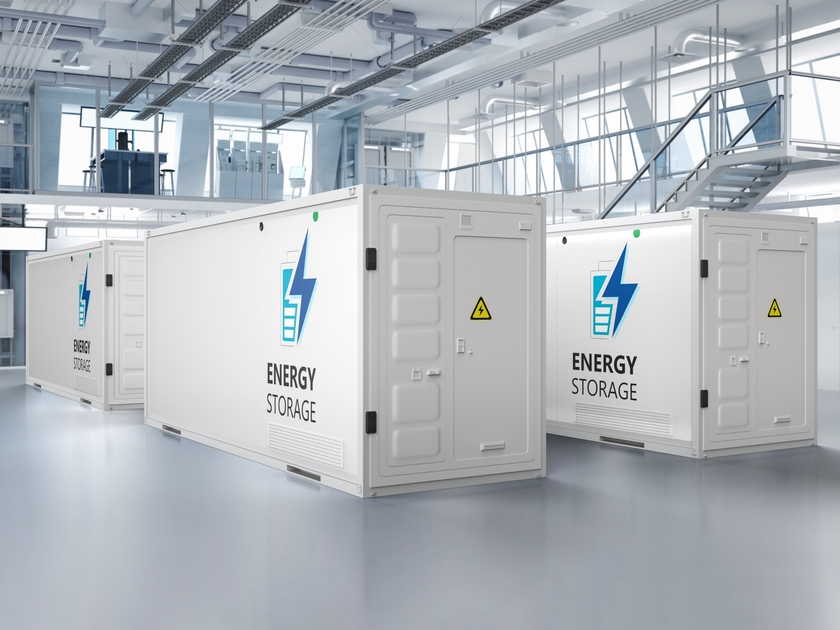Commercial and industrial facilities need a constant and reliable source of energy to power their operations and equipment. This statement is especially true for mission-critical facilities like hospitals and data centers.
Battery energy storage systems (BESSs) are increasingly becoming a key source of reliable power. In fact, according to the U.S. Energy Information Administration, battery energy storage capacity in the U.S. nearly doubled in 2024. According to a recent National Electrical Manufacturers Association study, BESS market growth is due to expansions in data centers, electric vehicles, commercial building resilience and demand management and the integration of renewable energy.
How battery energy storage works
BESSs store electricity for later use by converting electrical energy into chemical energy during charging. This energy is held in the battery cells until needed. When discharged, the chemical energy transforms back into electricity, supplying power to buildings and equipment.
Most systems rely on rechargeable lithium-ion batteries. Advantages of lithium-ion include high energy density (more power storage in a smaller space), longer lifespan than other technologies and faster charging capabilities. Other battery technologies include sodium-ion, lead-acid and nickel-cadmium.
The benefits of battery energy storage
The biggest benefit of a BESS for your facility is improved energy resilience. They can provide reliable backup power during grid outages or emergencies, ensuring uninterrupted operations and preventing costly downtime. Additional benefits of BESSs include:
- Lower energy costs by reducing peak demand charges and avoiding costly penalties associated with exceeding predefined energy limits, leading to substantial savings.
- Optimizing renewable energy by effectively harnessing and utilizing the generated energy, thereby reducing dependence and stress on the grid.
- Decreased carbon footprint by minimizing reliance on fossil fuels and promoting clean energy usage, meeting sustainability goals. BESSs also enable more solar to be installed.
Installation considerations
BESS installations can range widely in size. The system should be scalable and flexible to accommodate varying energy demands. Factors to consider include initial investment, energy usage patterns (determined by conducting an audit), electricity rates, maintenance costs and expected lifespan. An ideal site uses a single meter and has enough space for the battery.
BESS installations can be expensive, but financing options are available. Energy storage projects may be eligible for a federal investment tax credit that covers up to 30% of the project costs.
Join the growing number of commercial facilities around the country and start realizing the financial, operational and environmental benefits of battery energy storage.

